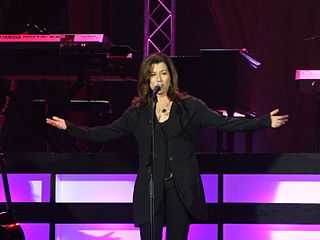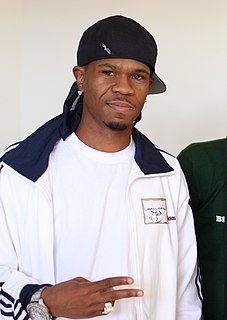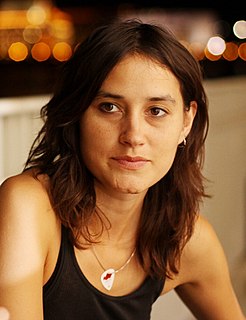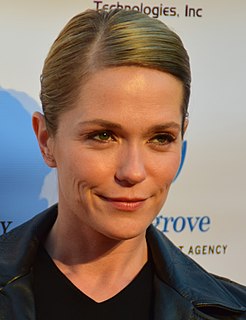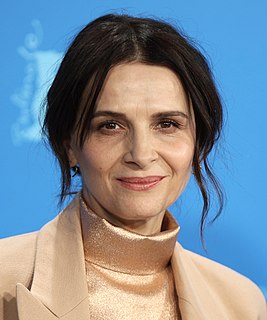A Quote by Amy Grant
The great thing about a song is that no one has to know your story. But if you tell it in a way that has clarity and means something to somebody else, then it can apply to their story.
Related Quotes
A story is a way to say something that can't be said any other way, and it takes every word in the story to say what the meaning is. You tell a story because a statement would be inadequate. When anybody asks what a story is about, the only proper thing is to tell them to read the story. The meaning of fiction is not abstract meaning but experienced meaning.
I think the best thing about music is that someone could be writing a song that's so personal, and it tells so many other people's story at the same time. It kind of exemplifies that we are all kind of on the same wave[length] - it's amazing how comforting somebody else's story can be, because we have experienced their story in some way or another, and I can totally relate, and I get to feel that feeling and the expression of that emotion. I get to feel like as a listener, that somebody understands me, which is pretty incredible.
If you gauge how you're doing on whether somebody is responding vocally or not, you're up a creek. You can't do that; you kind of have to be inside of your work and play the scene. And tell the story every day. Tell the story. Tell the story. Regardless of how people are responding, I'm going to tell the story.
Thank God, 50 years ago I learned that our entire business is all based on two things; a great song and a great story. Film, television, if you don't have that story, nothing else matters. You don't call anybody else or direct anybody. The same with a song. A great song can make the worst singer in the world a star.
One of the things that I was kind of holding on to from 'The Daily Show' was there was an exhaustion that I would feel because we just kind of got caught up in the news cycle. You tell a story, and that's an interesting story, and then the next day we have to drop it and talk about something else. That's so unfair to the story and the people.
I've found great virtue in two-thirds of the way into the message; right before I'm really want to nail home a point, pausing to tell a joke or to tell a light-hearted story, because I know my audience has been working with me now for 20 or 25 minutes. And if I can get them to laugh, get oxygen into their system, it wakes up those who might be sleeping, so there's something about using a story to draw people back in right before you drive home your final point. In that case I think it's real legitimate just to use a story for story's sake.
This is the story, this is your character, I have the sense of the landscape, I have the sense of the scene, I have all that stuff. But I'm also looking for something else to happen, an accident or something. You're focused on the story you intend to tell and then you have to have a peripheral net out to catch these accidents.
Experimental novels are sometimes terribly clever and very seldom read. But the story that appeals to the child sitting on your knee is the one that satisfies the curiosity we all have about what happened then, and then, and then. This is the final restriction put on the technique of telling a story. A basic thing called story is built into the human condition. It's what we are; it's something to which we react.
